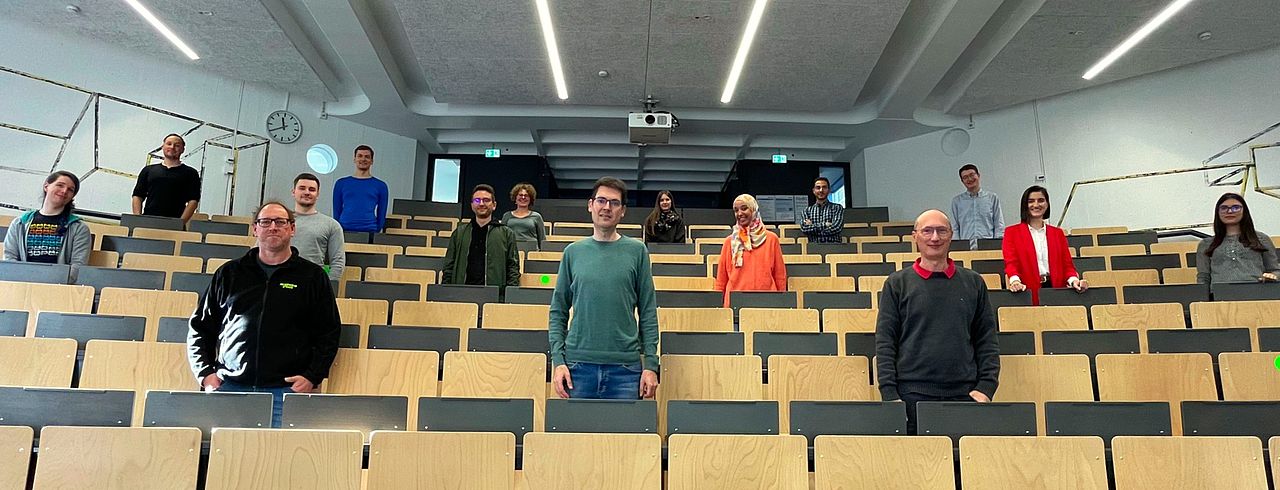Info-Veranstaltung am Dienstag, 16.04., 10:00 Uhr in Raum O27/341
Forschung
Unser Institut beschäftigt sich mit einem breiten Themenspektrum wie Skalierbarkeit, Zuverlässigkeit, Sicherheit und Datenschutz, Selbstorganisation und Beherrschbarkeit von Komplexität in Verteilten Systemen in einer Vielzahl von Einsatzszenarien wie Cloud-Computing oder Fahrzeug-Fahrzeug-Kommunikation.
Lehre
In der Lehre decken wir das gesamte Spektrum von Rechnernetzen, über verteilte Systeme bis hin zu Sicherheit und Privacy-Schutz ab. Unsere noch offenen Abschlussarbeiten und Projektarbeiten finden Sie auf den entsprechenden Webseiten. Für Prüfungen beachten Sie bitte unsere Hinweise.
Soziale Medien
Unsere letzten Publikationen
Klicken Sie hier um eine Übersicht aller Publikationen zu erhalten.
News
Ältere News finden Sie im Archiv.
Sekretariat
Marion Köhler
Lysha Lewis
Email-Adresse Sekretariat
Telefon: +49 731 50-24140
Telefax: +49 731 50-24142
Postanschrift
Institut für Verteilte Systeme
Universität Ulm
Albert-Einstein-Allee 11
89081 Ulm
Besucheranschrift
James-Franck-Ring
Gebäude O27, Raum 349
89081 Ulm
Sekretariat:
Montag, Mittwoch und Donnerstag ganztags
Dienstag und Freitag nur vormittags besetzt.

